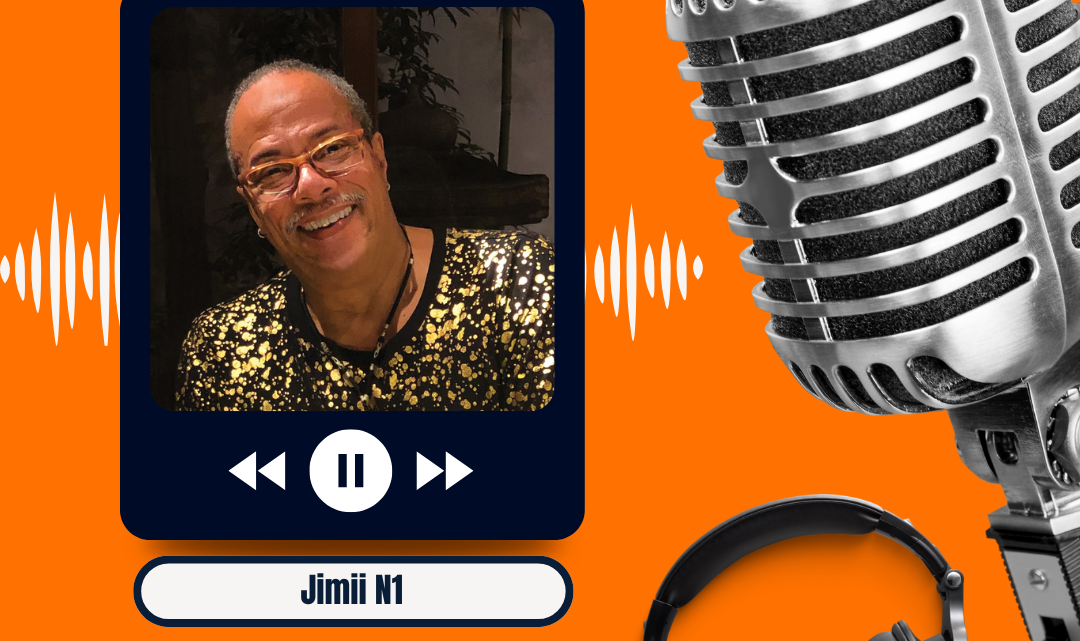The Healing Power of Music: Insights from an Interview with Jimii N1
July 14, 2024

Jimii N1’s interview begins with a sentiment that resonates deeply with many: music as a source of solace and healing. From the comforting strains of a cherished song to the transformative power of melody, music holds an intrinsic ability to soothe the soul. “Music has always been a sense of comfort for me, and it’s also been a sense of peace,” Jimii shares (\[0:01:59]). This assertion captures an essential truth about music’s role in our lives: it not only entertains but also offers a therapeutic escape from the stresses and tribulations that life throws our way.
Jimii emphasizes that music’s therapeutic qualities aren’t just anecdotal but deeply spiritual. “It’s amazing how music has healing ability,” he notes (\[0:03:00]). His personal experiences illustrate how music can even serve as a miraculous agent of change. Recounting a Stevie Wonder concert that opened his eyes to the divine power of music, Jimii connects this experience to a biblical reference: “Greater things than these shall ye do” (\[0:03:49]). The universal and spiritual connotations here are profound. Music can indeed alter moods, catalyze personal growth, and even save lives.
This healing aspect is not something to be taken lightly. It’s no wonder artists, including Jimii N1, invest significant effort into their work, hoping that their music can similarly impact others. For Jimii, his song “My Wish” is such an example, crafted during a period where he was addressing personal pain and that of someone he loved (\[0:09:51]).
Artistic Authenticity
Creating genuine and relatable art often requires the artist to bare their soul. For Jimii, this means pouring personal experiences and emotions into his work. One of the standout aspects of his artistic journey is his approach to authenticity. “When your heart gets involved, I think that makes it a lot easier coming up with the lyrics,” he explains (\[0:11:20]). This organic process of lyric creation underscores a broader point: true art often springs from personal truths.
Jimii’s approach is eloquently captured in his reflections on his song-making process. He describes his work as “divine intervention,” suggesting that his music emerges organically and effortlessly, almost as if it is channeled through him rather than explicitly constructed. Whether walking, swimming, or simply reflecting, inspirations for his music come from various facets of his life (\[0:09:34]). This spontaneous and heart-driven process stands in contrast to more calculated approaches to music creation, emphasizing an authenticity that resonates with listeners on a profound level.
Moreover, his creative process integrates a spiritual and meditative aspect. “There’s a peacefulness that comes from \[exercising], and I think that’s why a lot of my music has been described as somewhat meditative,” he elaborates (\[0:12:00]). This tranquility translates into his songs, making them ideal for listeners seeking solace and positivity in their own lives.
Inclusivity in Art
One of the most compelling aspects of Jimii’s music is its inclusive and compassionate narrative. The song “My Wish” emerges from a place of empathy and social awareness. Crafted for a friend struggling with acceptance and self-disclosure, the song extends its reach to anyone experiencing social marginalization and personal challenges, including the LGBTQ+ community, people with disabilities, and those facing mental health issues (\[0:14:47]).
Jimii shines a light on the alarming statistics that reveal the struggles of marginalized groups. For example, 60% of gay children who come out face suicidal tendencies within five years (\[0:15:17]). These shocking figures underline the urgency for compassionate and supportive messages in art. “My Wish” seeks to address this emotional and psychological turmoil by offering a message of hope, understanding, and unconditional love.
It’s not just about addressing the pain, though, but also about challenging societal norms. Jimii criticizes the narrow societal definitions that suppress individuality: “It’s very dramatic that you have to live in a world where it’s been acceptable to live in someone else’s limited imagination of what it means to be human” (\[0:16:15]). Through his music, Jimii advocates for a broader understanding and acceptance of human diversity, influencing listeners to embrace love over judgment.
In constructing a platform where everyone feels seen and valued, Jimii aims to inspire others. His music becomes a beacon for those grappling with societal acceptance, enabling them to find not just solace but also a sense of belonging and empowerment.
Recap and Insights
The interview with Jimii N1 on Power 107.6 illustrates his journey into the world of music, driven by a blend of personal experiences, spiritual insights, and social consciousness. It’s clear that music serves a pivotal role in Jimii’s life, offering not just a medium for expression but also a means for healing and fostering unity.
The themes of healing through music, the importance of artistic authenticity, and the call for inclusivity ring throughout the discussion. Jimii’s spontaneous and heart-led process of creating music ensures that each note and lyric resonates with authenticity. His efforts to address broader social issues through his art underline a compassionate and inclusive ethos.
As Jimii articulates, “The universe kind of delivers what you go for” (\[0:28:27]). This aphorism speaks to the power of intention in the creative process. For aspiring artists, the key takeaway is clear: let your work be an honest reflection of your truths and experiences. In doing so, you not only create art that deeply connects with others but also carve a space for healing, acceptance, and even transformation.
Throughout the discussion, Jimii N1 emerges not just as a musician, but as a storyteller and healer, using his platform to uplift and inspire. His journey and insights provide a roadmap for others, emphasizing the vital interplay between authenticity, empathy, and creativity in the world of music.



